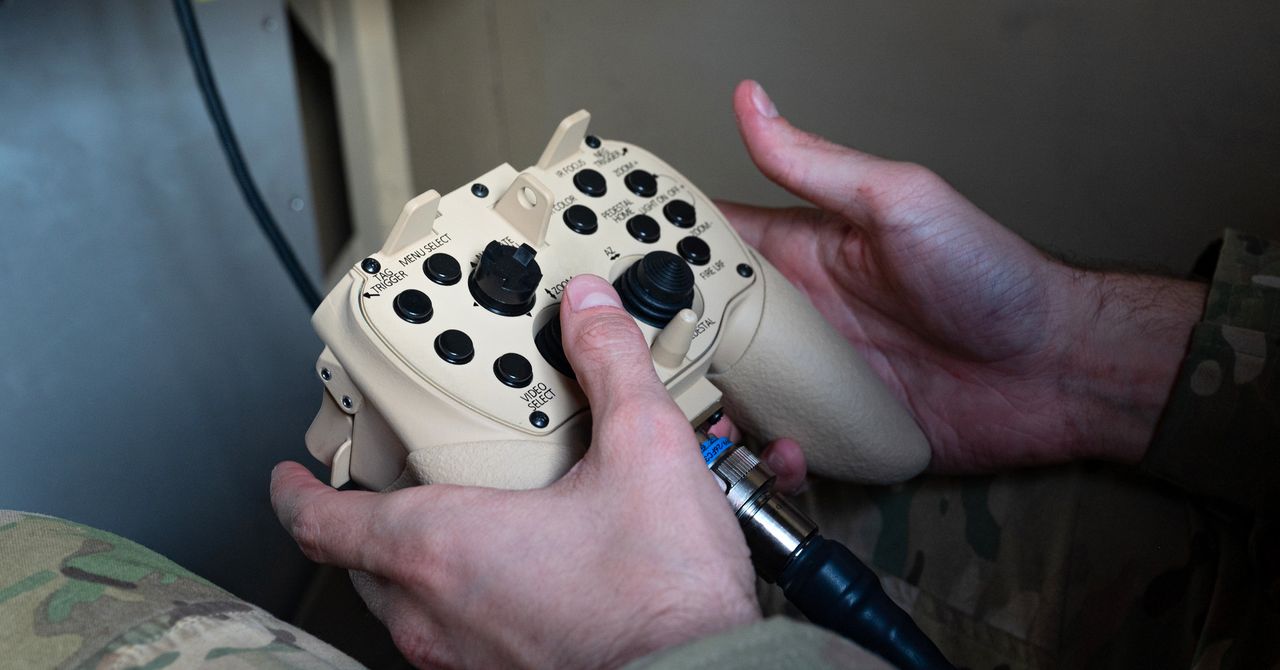
In a future conflict, American troops will direct the newest war machines not with sprawling control panels or sci-fi-inspired touchscreens, but controls familiar to anyone who grew up with an Xbox or PlayStation in their home.
Over the past several years, the US Defense Department has been gradually integrating what appear to be variants of the Freedom of Movement Control Unit (FMCU) handsets as the primary control units for a variety of advanced weapons systems, according to publicly available imagery published to the department’s Defense Visual Information Distribution System media hub.
Those systems include the Army’s new Maneuver-Short Range Air Defense (M-SHORAD) system that, bristling with FIM-92 Stinger and AGM-114 Hellfire missiles and a 30-mm chain gun mounted on a Stryker infantry fighting vehicle, is seen as a critical anti-air capability in a potential clash with Russia in Eastern Europe; the Air Force’s MRAP-based Recovery of Air Bases Denied by Ordnance (RADBO) truck that uses a laser to clear away improvised explosive devices and other unexploded munitions; and the Humvee-mounted High Energy Laser-Expeditionary (HELEX) laser weapon system currently undergoing testing by the Marine Corps.
The FMCU has also been employed on a variety of experimental unmanned vehicles, and according to a 2023 Navy contract, the system will be integral to the operation of the AN/SAY-3A Electro-Optic Sensor System (or “I-Stalker”) that’s designed to help the service’s future Constellation-class guided-missile frigates track and engage incoming threats.
Produced since 2008 by Measurement Systems Inc. (MSI), a subsidiary of British defense contractor Ultra that specializes in human-machine interfaces, the FMCU offers a similar form factor to the standard Xbox or PlayStation controller but with a ruggedized design intended to safeguard its sensitive electronics against whatever hostile environs American service members may find themselves in. A longtime developer of joysticks used on various US naval systems and aircraft, MSI has served as a subcontractor to major defense “primes” like General Atomics, Boeing, Lockheed Martin, and BAE Systems to provide the handheld control units for “various aircraft and vehicle programs,” according to information compiled by federal contracting software GovTribe.
“With the foresight to recognize the form factor that would be most accessible to today’s warfighters, [Ultra] has continued to make the FMCU one of the most highly configurable and powerful controllers available today,” according to Ultra. (The company did not respond to multiple requests for comment from WIRED.)













